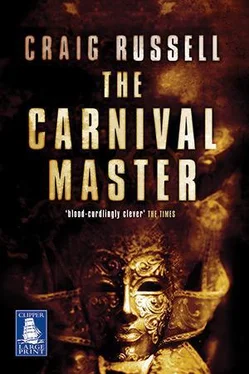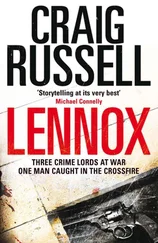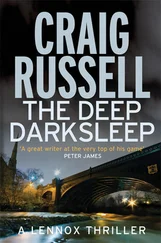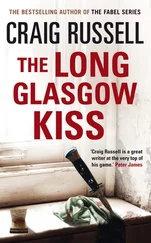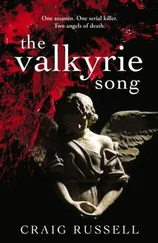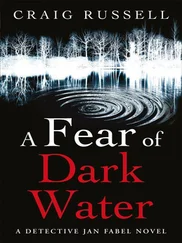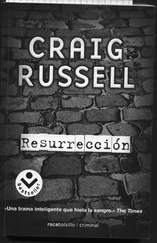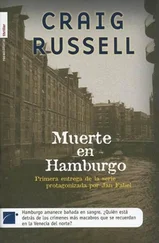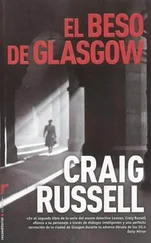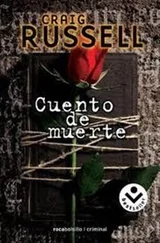Craig Russell - The Carnival Master
Здесь есть возможность читать онлайн «Craig Russell - The Carnival Master» весь текст электронной книги совершенно бесплатно (целиком полную версию без сокращений). В некоторых случаях можно слушать аудио, скачать через торрент в формате fb2 и присутствует краткое содержание. Жанр: Триллер, на английском языке. Описание произведения, (предисловие) а так же отзывы посетителей доступны на портале библиотеки ЛибКат.
- Название:The Carnival Master
- Автор:
- Жанр:
- Год:неизвестен
- ISBN:нет данных
- Рейтинг книги:3 / 5. Голосов: 1
-
Избранное:Добавить в избранное
- Отзывы:
-
Ваша оценка:
- 60
- 1
- 2
- 3
- 4
- 5
The Carnival Master: краткое содержание, описание и аннотация
Предлагаем к чтению аннотацию, описание, краткое содержание или предисловие (зависит от того, что написал сам автор книги «The Carnival Master»). Если вы не нашли необходимую информацию о книге — напишите в комментариях, мы постараемся отыскать её.
The Carnival Master — читать онлайн бесплатно полную книгу (весь текст) целиком
Ниже представлен текст книги, разбитый по страницам. Система сохранения места последней прочитанной страницы, позволяет с удобством читать онлайн бесплатно книгу «The Carnival Master», без необходимости каждый раз заново искать на чём Вы остановились. Поставьте закладку, и сможете в любой момент перейти на страницу, на которой закончили чтение.
Интервал:
Закладка:
‘I don’t know why we’re having this fight…’ Fabel sat down again. His voice was tired. ‘I keep telling you, I’m finished with the Murder Commission. With the Polizei Hamburg.’
‘We’re having this fight because you won’t commit to anything.’
‘What’s that supposed to mean?’
‘You know what it means, Jan. It was your idea for us to move in together, but we’ve been looking at apartments for months. It doesn’t matter what part of town, what type of apartment, you just walk away shrugging your shoulders. You can’t commit to changing jobs and you can’t commit to me. Why don’t you just admit it?’
‘How many times have I got to say this, Susanne? I turned them down. Flat. And my resignation is final. In five weeks’ time I cease to be a policeman.’ Fabel stood up and placed his hands on Susanne’s shoulders. ‘And I can’t help it if we haven’t seen an apartment that I like. That doesn’t mean I’m not committed to you. You know I am.’
‘Are you?’ She pushed his hands away. ‘Then why have you been so distant? For the last couple of months. I don’t know what it is I’ve said or done, but you’ve been strange with me. Cold.’
‘That’s nonsense…’ said Fabel.
‘Is it?’ Susanne gestured to the case material on the coffee table. ‘And what about this? Is it nonsense that you’re taking on a new case when you’re supposed to be finishing up?’
‘Yes, it is. I told you. I’ve been asked to offer an opinion. That’s all.’
‘And of course you couldn’t say no.’
‘No, I couldn’t. Whether you like it or not, Susanne, I’m a policeman for the next five weeks.’
Susanne turned and went back to bed and Fabel stood silently for a moment, looking at the closed bedroom door. Then he sat down and turned his mind again to a distant city and the deaths of two young women in it.
Fabel suddenly became aware that daylight was beginning to fill his flat and a leaden tiredness his body. He had been reading, comparing, taking notes for over three hours. It remained the assumption of the investigating officer, Scholz, that the two victims had been chosen entirely at random. But Fabel had noticed something as he had examined the morgue photographs of the victims: despite the difference in their heights, both women had slightly pear-shaped figures, with a fleshiness around their bottoms, lower belly and thighs.
Fabel read Scholz’s notes: There is no evidence of pre-mortem disfigurement. The comparative lack of blood loss from the site suggests that the victims were first strangled with a ligature, and fibres found embedded in the abraded skin on the necks confirm that the ties left at the scenes were the murder weapons. Inconsistent fibres were found on the tie used in the first murder. These fibres were unusual in colour and composition: blue felt. Once the victims were dead, the perpetrator partially stripped them, turned them face down in the pose in which they were found, and then, post-mortem, excised a quantity of flesh from the buttock or upper thigh of the victims. There is clearly a significance in this disfigurement. The perpetrator removes the flesh symbolically. A point of interest is the quantity of flesh removed. It is possible by exact measurement of the excised area to calculate accurately the weight of flesh removed. In the first case, 0.47 kilos were taken, and 0.4 kilos were cut from the second victim. The similarity in weight seems too close to be coincidental and would suggest that the killer has some expertise in measuring quantities. There is also no deviation from or correction of his incisions. These two facts would suggest that he may be someone used to working with quantities of meat and could be involved in butchery or meat rendering as a career. Similarly, he may be a surgeon or otherwise medically qualified. The quantity of flesh removed may be significant in itself. In each case it has been extremely close to the 0.45 kilogram measure. This equates to one Imperial pound in weight, as used by the British. This is not to say that the killer is a foreign national, more that ‘a pound of flesh’ is intended (as in the Shakespeare play The Merchant of Venice) and therefore is a metaphor for recovering justice from the victims. This could suggest that the killer was known to his victims. It is clear from the consistency of modus that the perpetrator of the first murder also carried out the second homicide. This, added to the symbolism of the tie left at each scene and the significance of Karneval, and the implied expression of psychosexual hatred of women all point to a serial offender.
Fabel leafed through the file. Weiberfastnacht had another name. Fetter Donnerstag. Fat Thursday. A day devoted to gluttony.
‘No, Herr colleague,’ Fabel said under his breath as he re-examined the scene-of-crime images. ‘Our friend isn’t interested in collecting mementos. He’s hungry. His pound of flesh isn’t a trophy: it’s a meal.’
The phone rang.
10.
They stood and stared at the three clear plastic packages on Anna’s desk: one containing an ancient-looking Walther P4 handgun, the other holding a carrier bag with cash and the third with a large dog-eared book in it. Each of them was sealed and labelled with a blue evidence tag.
‘We found it outside the store,’ said Anna Wolff, indicating the book. She was in charge of the case. ‘Philosophy. That’s what Tschorba studied – at one time, anyway.’
Fabel continued to stare silently at the evidence bags.
Anna ran through what had happened in the convenience store. The Turkish owner had said in his statement that Breidenbach had died bravely; that the young policeman had been determined that the robber would not go out into the street with a handgun. He also stated that he had got the idea to jump Tschorba from Breidenbach, who had told the gunman that he couldn’t take them both. As Timo Tschorba had fired the fatal shots into Breidenbach’s body, the shopkeeper had thrown himself at him. Tschorba was now in the cells, his swollen and bruised face bearing the marks of the encounter with the Turk. Once the shopkeeper had disarmed the junkie, he had rushed over to Breidenbach, but the young policeman was already dead. He admitted that when he had seen that, he had gone back and pistol-whipped Tschorba, who had cried like a child.
‘I can’t believe it,’ said Fabel at last. ‘He was there. I mean Breidenbach. He was there at the Aichinger incident. He was the MEK trooper who came up to the apartment with me.’ He shook his head mournfully. ‘I behaved like an arsehole… I treated Breidenbach as if he were less of a policeman than me. Just because he was a tactical weapons specialist. I was wrong. He was a police officer first and foremost.’
Anna went through the statement, including Tschorba’s confession, the ballistics and forensics report and the initial observations from Moller, the pathologist. Fabel took in very little. It was the Murder Commission mantra of dry facts and figures, of times and causes of death, of wounded flesh and rendered fabric. He had heard it so, so many times before. His thoughts still held him on a landing of a block of flats in Jenfeld with a young MEK trooper just starting his career as Fabel was ending his. He found he could not forgive himself for making sweeping judgements about Breidenbach’s motivations and ambitions. Fabel thought about Breidenbach’s youth, about how fit he had been, and then imagined him lying grey and blood-drained on Moller’s stainless steel autopsy table, sliced open, the vestigial warmth from his inner organs dissipating into the cool autopsy-room air.
After Anna’s briefing, he asked Werner to come into his office. This had become an almost daily ritual since Fabel’s resignation: the gradual transfer of responsibility to his friend. It had always been Maria that he had envisaged taking over, but that was simply not going to happen. He updated Werner on the caseload, confirming that Anna and Henk Hermann should see through the Breidenbach murder. When they were finished Fabel switched on his voicemail and took his jacket from behind the door.
Читать дальшеИнтервал:
Закладка:
Похожие книги на «The Carnival Master»
Представляем Вашему вниманию похожие книги на «The Carnival Master» списком для выбора. Мы отобрали схожую по названию и смыслу литературу в надежде предоставить читателям больше вариантов отыскать новые, интересные, ещё непрочитанные произведения.
Обсуждение, отзывы о книге «The Carnival Master» и просто собственные мнения читателей. Оставьте ваши комментарии, напишите, что Вы думаете о произведении, его смысле или главных героях. Укажите что конкретно понравилось, а что нет, и почему Вы так считаете.
